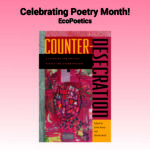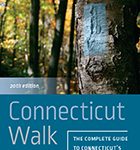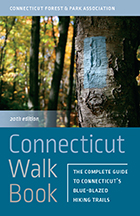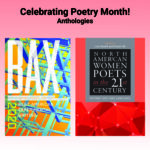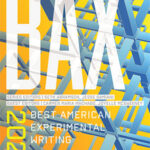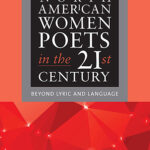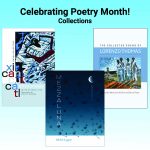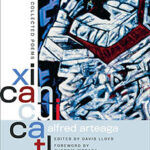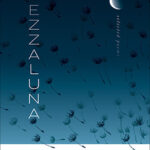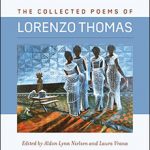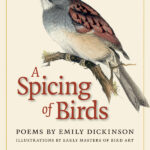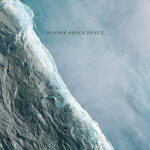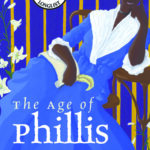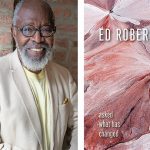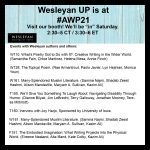
We celebrate Women’s History Month by honoring amazing work by Camille Dungy, Hafizah Geter, Joy Harjo, Brenda Hillman, Honorée FFanonne Jeffers, Minnie Bruce Pratt, Rae Armantrout, Evie Shockley, and Kerri Webster. View a sampling of poems here

The collection of love poems in Magnified draws us into the sacred liminal space that surrounds death. With her beloved gravely ill, poet and activist Minnie Bruce Pratt turns to daily walks and writing to find a way to go on in a world where injustice brings so much loss and death. Each poem is a pocket lens “to swivel out and magnify” the beauty in “the little glints, insignificant” that catch her eye: “The first flowers, smaller than this s.” She also chronicles the quiet rooms of “pain and the body’s memory,” bringing the reader carefully into moments that will be familiar to anyone who has suffered similar loss. Even as she asks, “What’s the use of poetry? Not one word comes back to talk me out of pain,” the book delivers a vision of love that is boldly political and laced with a tumultuous hope that promises: “Revolution is bigger than both of us, revolution is a science that infers the future presence of us.” This lucid poetry is a testimony to the radical act of being present and offers this balm: that the generative power of love continues after death.
Minnie Bruce Pratt (Syracuse, NY), an LGBTQ writer and activist originally from Alabama, is the author of nine books of poetry, creative nonfiction and political theory. She is a Managing Editor of Workers World/Mundo Obrero newspaper.

Camille Dungy is the author of several books including, most recently, Trophic Cascade , as well as Smith Blue, Such on the Marrow, and What to Eat, What to Drink, What to Leave for Poison. She is the editor of Black Nature: Four Centuries of African American Nature Poetry. She also currently serves on the advisory board for Sixteen Rivers Press, Iron Horse Literary Review, Orion Magazine, and University Press of Kentucky Contemporary Poetry and Prose Series. Her poetry and essays have been published in dozens of journals, magazines, anthologies, and edited collections including The Ecopoetry Anthology, The Rumpus, Boston Review, Kenyon Review, Poetry, The American Poetry Review, Tin House, and more. Dungy earned a BA in English literature, with an emphasis in creative writing from Stanford University and a MFA in creative writing/poetry from University of North Carolina, Greensboro. She currently teaches creative writing as a professor at Colorado State University.

Joy Harjo, Poet Laureate of the United States (2019–2021), is an internationally known poet, performer, writer, and saxophone player of the Mvskoke/Creek Nation. She has released four award-winning CD’S of original music and won a Native American Music Award (NAMMY) for Best Female Artist of the Year for Winding Through the Milky Way in 2009. She performs nationally and internationally with her band, the Arrow Dynamics.
Harjo’s latest titles include Wings of Night Sky, Wings of Morning Light: A Play with a Circle of Responses, Conflict Resolution for Holy Beings, Crazy Brave, winner of 2013 American Book Award, Soul Talk, Song Language: Conversation with Joy Harjo, For a Girl Becoming, which received both a Moonbeam Award and a Silver Medal for the Independent Publishers Awards, The Good Luck Cat, The Woman Who Fell from the Sky, and In Mad Love and War, winner of 1991 American Book Awards.
Her writing has garnered many awards including the Camaiore International Award, the 2016 Griffin Poetry Prize, Ruth Lilly Poetry Prize, IAIA American Book Award, 2013 PEN Literary Award for Creative Nonfiction, Eagle Sprit Achievement Award, New Mexico Governor’s Award for Excellence in the Arts, the Lifetime Achievement Award from the Native Writers Circle of the Americas, the William Carlos Williams Award from the Poetry Society of America, and the Wallace Stevens Award from the Academy of American Poets.
Harjo was born in Tulsa, Oklahoma, and earned her BA in creative writing (1976) at University of New Mexico and MFA (1978) at University of Iowa.


Also by Joy Harjo, Soul Talk, Song Language: Conversations with Joy Harjo and Wings of Night Sky, Wings of Morning Light: A Play by Joy Harjo and a Circle of Responses.

Honorée Fanonne Jeffers is a Professor of English at the University of Oklahoma and the author of five books of poetry. Her most recent book, The Age of Phillis, is long-listed for the 2020 National Book Award for poetry. Her previous poetry collections include The Glory Gets, Red Clay Suite, Outlandish Blues and The Gospel of Barbecue. Jeffers’ first novel, The Love Songs of W.E.B. DuBois, is forthcoming from Harper in 2021.
Jeffers is Critic at Large for The Kenyon Review and has acted as an editor for Common-Place: The Interactive Journal of Early American Life and for PMS: Poetry/Memoir/Story: The Black Women’s Issue. Her work has appeared in such journals as Poetry, Iowa Review, Prairie Schooner, Ploughshares, and other; and has been anthologized in Angels of Ascent: A Norton Anthology of Contemporary African American Poetry, Poems of the American South, and elsewhere.
In addition being long-listed for the 2020 National Book Award, Jeffers has received numerous awards and honors, including the Harper Lee Award for Literary Distinction for an Alabama Writer in 2018, a Witter Bynner Fellowship through the Library of Congress, a fellowship from the National Endowment for the Arts, the Julia Peterkin Award for Poetry, and awards from the Rona Jaffe Foundation for Women Writers, the Barbara Deming Memorial Fund for Women, and the Cleveland Center for Contemporary art.


Also by Honorée Fanonne Jeffers, Outlandish Blues and The Glory Gets.

Kerri Webster is a poet and professor raised in Idaho. She holds a BA in English with Honors from Boise State University and an MFA in Creative Writing (Poetry) from Indiana University.
Webster is the author of three collections of poetry: The Trailhead (Wesleyan University Press, Grand & Arsenal, and We Do Not Eat Our Hearts Alone, as well as two chapbooks, Psalm Project and Rowing Through Fog. Grand & Arsenal was selected by Jane Mead for the Iowa Poetry Prize, and We Do Not Eat Our Hearts Alone was selected by Elizabeth Robinson as the winner of the Contemporary Poetry Series. She is also a recipient of the 2011 Whiting Award, the Alice Fay di Castagnola award from the Poetry Society of America, and, earlier in her career, awards from Crazyhorse, River Styx, and the BellinghamReview. Her work has appeared in a number of journals including the Boston Review, Poetry, Denver Quarterly, Kenyon Review, and American Poet. Most recently, she held a Literature Fellowship from the Idaho Commission on the Arts in 2016.Webster was a Visiting Professor at Washington University in St. Louis and an Adjunct Instructor at the College of Western Idaho. She currently teaches in the MFA program at Boise State University.

Born in Zaria, Nigeria, Hafizah Geter is a Nigerian-American poet, writer, and editor. She received her BA in English and economics from Clemson University and an MFA in poetry from Columbia College Chicago. Hafizah’s poetry and prose have appeared in The New Yorker, Tin House, Boston Review, Longreads, and McSweeney’s Indelible in the Hippocampus, among others.She is the author of, Un-American .
An editor for Little A and TOPPLE Books from Amazon Publishing, Geter is currently an Axinn Fellow in Creative Narrative Nonfiction at New York University from 2019 to 2021. She also serves on the planning committee for the Brooklyn Book Festival and lives in Brooklyn, New York where she is working on a novel about coming to America and a full-length nonfiction project about the intersection of anti-blackness, climate change, language, borders, and the aftermath of American slavery in daily life. She has taught at Manhattanville College, Fashion Institute of Technology, and Columbia College Chicago

Rae Armantrout is Professor Emerita of Writing at the University of California at San Diego. She has also taught at the California College of Arts and Crafts, Bard College, Naropa University, San Diego State University, and San Francisco State University.
Her books include Conjure, Wobble, which a finalist for the National book Award; Partly: New and Selected Poems; Itself; Just Saying; Money Shot; and Versed, which received the Pulitzer Prize for Poetry, the National Book Critics Circle Award for Poetry, and was also a finalist for the National Book Award. Next Life and Up to Speed were selected by Publishers Weekly as best poetry books of their given years.
Armantrout has been published in many anthologies, including The Oxford Book of American Poetry and Scribner’s Best American Poetry of 1998, 2001, 2002, 2004, 2007, 2008, and 2011, and in such magazines as Harpers, The New Yorker, American Poetry Review, Boston Review, Chicago Review, and the Los Angeles Times Book Review. She has also received awards from the Guggenheim Foundation (2008), the Fund for Poetry (1999 and 1994) and the California Arts Council Individual Artist Fellowship (1989).
She was born in Vallejo, California, and earned her AB at University of California at Berkeley (1970), and her MA at San Francisco State University (1975). She lives in Everett, Washington.








More books by Rae Armantrout pictured above.

Evie Shockley has published multiple books of poetry, including her latest collection semiautomatic and the new black, winner of the Black Caucus of ALA’s Literary Award for Poetry, and a half-red sea , in addition to two chapbooks. She is also the author of a book criticism, Renegade Poetics: Black Aesthetics and Formal Innovation in African American Poetry.
Shockley has had essays and reviews published in such journals as Callaloo, African American Review, and Indiana Review. Her poetry has appeared in MELUS, Harvard Review, Columbia Poetry Review, and in the anthology Black Nature: Four Centuries of African American Nature Poetry, among many other publications. She has sat on a number of panels and given many presentations at a variety of conferences including the “Césaire at 100!” forum, MLA, the American Studies Association Conference, and the American Literature Association. She has read at the Vermont Studio Center, Squaw Valley Community of Writers, Barnard College, University of New Mexico, and at a number of other universities and literary venues.

Also by Evie Shockley, the new black.

Brenda Hillman is Professor of Creative Writing and holds the Olivia Filippi Chair in Poetry at Saint Mary’s College of California, in Moraga, California. In addition, she is a member of the permanent faculty of Napa Valley Writers’ Conference. She was elected to the Board of Chancellors of the Academy of American Poets in 2016.
Hillman has published ten collections of poetry with Wesleyan University Press: Cascadia , Pieces of Air in the Epic, (winner of the William Carlos Williams Award), Practical Water (winner of the Los Angeles Times Book Award for Poetry), and Seasonal Works with Letters on Fire (winner of the winner of the 2014 Griffin Prize for Poetry). Her newest title, Extra Hidden Life, among the Days was published in February of 2018.
Hillman edited an edition of Emily Dickinson’s poetry for Shambhala Publications, and, with Patricia Dienstfrey, co-edited The Grand Permission: New Writings on Poetics and Motherhood . She has co-translated and edited works by Ana Cristina Cesar, Jeongrye Choi, Ashur Etwebi, and Richard O. Moore. Hillman has received Fellowships from the National Endowment for the Arts and the Guggenheim Foundation; two Pushcart Prizes; a Holloway Fellowship from the University of California at Berkeley; and the Delmore Schwartz Memorial Award for Poetry. Her work has appeared in several editions of The Best American Poetry.
She has received Fellowships from the National Endowment for the Arts and the Guggenheim Foundation; two Pushcart Prizes; a Holloway Fellowship from the University of California at Berkeley; and the Delmore Schwartz Memorial Award for Poetry. Her work has appeared in several editions of The Best American Poetry.
Brenda Hillman’s Web site is: http://www.brendahillman.net
An online reader’s companion is available at:brendahillman.site.wesleyan.edu





More books by Brenda Hillman pictured above.





